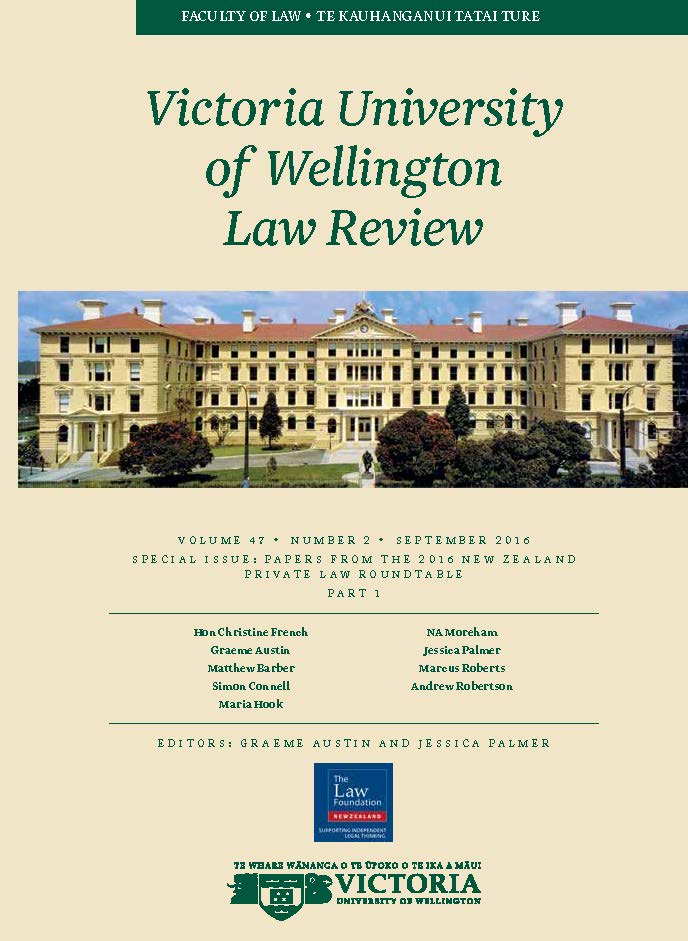The Limits of Interpretation in the Law of Contract
DOI:
https://doi.org/10.26686/vuwlr.v47i2.4801Abstract
In the law of contract questions of risk allocation properly turn, where possible, on interpretation of the agreement. This article will explore the limits of that approach. It will do so by considering two doctrines that lie at the boundaries of contract interpretation: the implication of terms in fact and the remoteness principle. Both doctrines have been commonly understood as gap-filling rules, but in two influential judgments Lord Hoffmann sought to recast them as interpretative principles. It will be argued in this article that the implication of terms in fact can properly be regarded as an interpretative exercise, but the same cannot be said of the application of the remoteness doctrine. The implication of terms in fact can helpfully be understood as interpretative, provided care is taken to explain the paths of reasoning leading to the conclusion that a contractual instrument must be understood to include a particular unexpressed term. Because no common paths of interpretative reasoning can be identified for the determination of remoteness questions, it is unsettling and counterproductive to attempt to take an interpretative approach to these questions.
Downloads
Downloads
Published
How to Cite
Issue
Section
License
Authors retain copyright in their work published in the Victoria University of Wellington Law Review.


